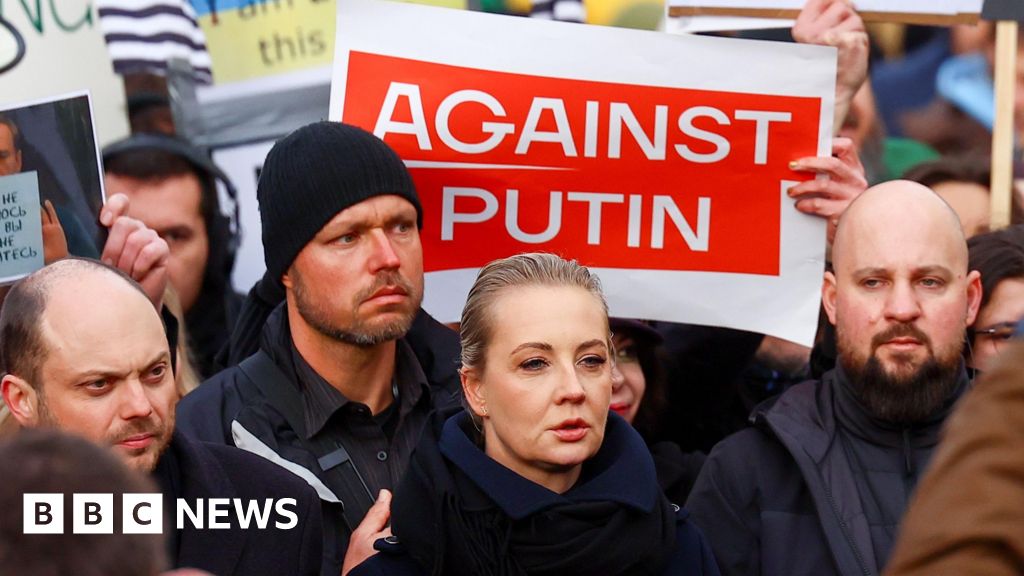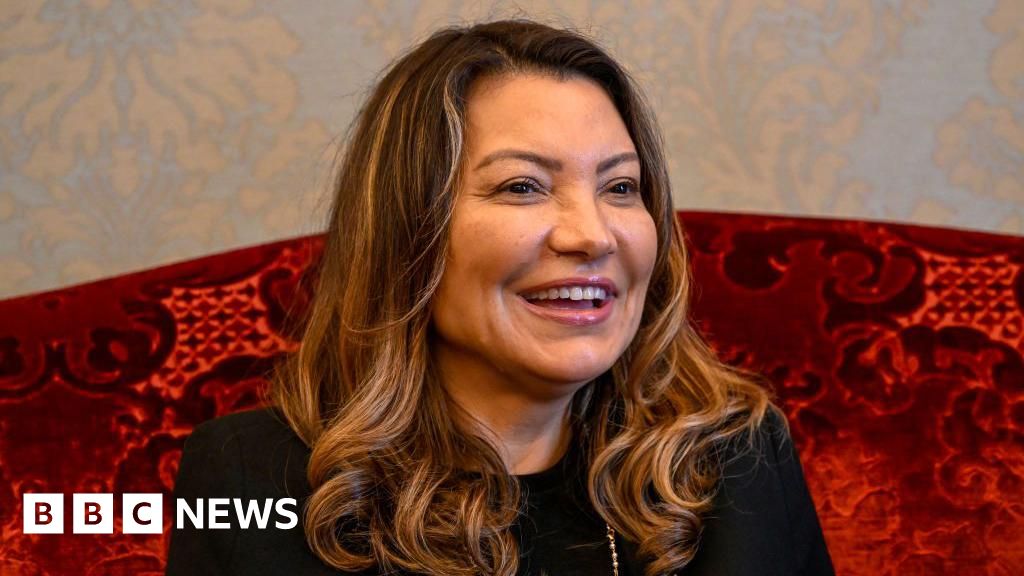ARTICLE AD BOX
By Dominic Casciani
Legal correspondent, BBC News
Image source, Sergei Orlov
Image caption,Ukraine has accused Russian forces of bombing a theatre where civilians were sheltering in the besieged city of Mariupol
US President Joe Biden has called Vladimir Putin a "war criminal" when discussing the conflict in Ukraine.
Ukrainian President Volodymyr Zelensky and UK Prime Minister Boris Johnson have previously both accused Russia of carrying out war crimes.
It may not seem like it, but "even war has rules", as the International Committee of the Red Cross puts it.
These are contained in treaties called the Geneva Conventions and a string of other international laws and agreements.
What is a war crime?
Civilians cannot be deliberately attacked - nor can the infrastructure that is vital to their survival.
Some weapons are banned because of the indiscriminate or appalling suffering they cause - such as anti-personnel landmines and chemical or biological weapons.
The sick and wounded must be cared for - including injured soldiers, who have rights as prisoners of war.
Other laws prohibit torture and genocide - the deliberate attempt to destroy a specific group of people.
Serious offences during war such as murder, rape or mass persecution of a group are known as "crimes against humanity".
What allegations of war crimes have there been in Ukraine?
Talking to reporters at the White House on Wednesday, President Biden described President Putin as a "war criminal" for the first time.
Officials later said he was "speaking from the heart", rather than making an official declaration.
But the Kremlin said it was "unacceptable and unforgiveable rhetoric".
The BBC has been told more than 1,000 people were in the building, but the number of casualties is unknown.
Image source, UKRAINE MILITARY VIA REUTERS
Ukraine previously called Russia's air strike on Mariupol's hospital a war crime. Three people were killed and 17 staff and patients were injured.
Russian troops are also accused of targeting fleeing civilians.
Image source, Private/Human Rights Watch
Image caption,Apparent evidence of a cluster bomb sub-munition in Kharkiv, passed to Human Rights Watch
The UK says Russia has used thermobaric explosives, which create a massive vacuum by sucking up oxygen. These are not banned - but their deliberate use near civilians would almost certainly break the rules of war.
Many experts argue the invasion itself is a crime under the concept of "aggressive warfare".
How are suspected war criminals pursued?
Each country has a duty to investigate suspected war crimes.
Some nations do so more than others.
In the UK, senior police officers have offered to help gather evidence of potential crimes in Ukraine.
How can suspected war criminals be prosecuted?
There have been a series of one-off courts since World War Two - including the tribunal investigating war crimes during the break-up of Yugoslavia.
Image source, AFP
Image caption,Théoneste Bagosora died while serving a 35-year sentence for his role in the 1994 Rwandan genocide
Today, the International Criminal Court (ICC) and the International Court of Justice (ICJ) have roles upholding the rules of war.
The International Court of Justice
The ICJ rules on disputes between states, but cannot prosecute individuals. Ukraine has begun a case against Russia.
If the ICJ ruled against Russia, the UN Security Council (UNSC) would be responsible for enforcing that.
But Russia - one of council's five permanent members - could veto any proposal to sanction it.
The International Criminal Court
The ICC investigates and prosecutes individual war criminals who are not before the courts of individual states.
It's the permanent modern successor to Nuremberg, which prosecuted key Nazi leaders in 1945.
Image source, Getty Images
Image caption,Nazis prosecuted at the Nuremberg trials included Hermann Goring, Rudolf Hess and Joachim von Ribbentrop
Nuremberg cemented the principle that nations could set up a special court to uphold international law.
Can the ICC prosecute offences in Ukraine?
Investigators will look at past and present allegations - going back as far as 2013, before Russia's annexation of Crimea from Ukraine.
If there's evidence, the prosecutor will ask ICC judges to issue arrest warrants to bring individuals to trial in The Hague.
But there are practical limitations to its power. The court doesn't have its own police force so relies on individual states to arrest suspects.
Like the US, Russia is not a member of the court - it pulled out in 2016. President Putin won't extradite any suspects.
If a suspect went to another country, they could be arrested - but that's a very big if.
Image source, Getty Images
Could President Putin or other leaders be prosecuted?
It's far easier to pin a war crime on a soldier who commits it, than the leader who ordered it.
But the ICC can also prosecute the offence of "waging aggressive war".
This is the crime of an unjustified invasion or conflict, beyond justifiable military action in self-defence.
It originated at Nuremberg, after the judge sent by Moscow convinced the Allies that the Nazis leaders should face justice for "crimes against peace".
However, Professor Philippe Sands QC, an expert on international law at University College London, says the ICC couldn't prosecute Russia's leaders for this because the country isn't a signatory to the court.
In theory, the UN Security Council could ask the ICC to investigate this offence. But again, Russia could veto this.
So is there any any other way to prosecute individuals?
The effectiveness of the ICC - and the way international law plays out in practice - depend not just on treaties, but politics and diplomacy.
And Prof Sands and many other experts argue that like Nuremberg, the solution lies once more in diplomacy and international agreement.
He's calling for world leaders to set up a one-off tribunal to prosecute the crime of aggression in Ukraine.

 2 years ago
47
2 years ago
47








 English (US)
English (US)